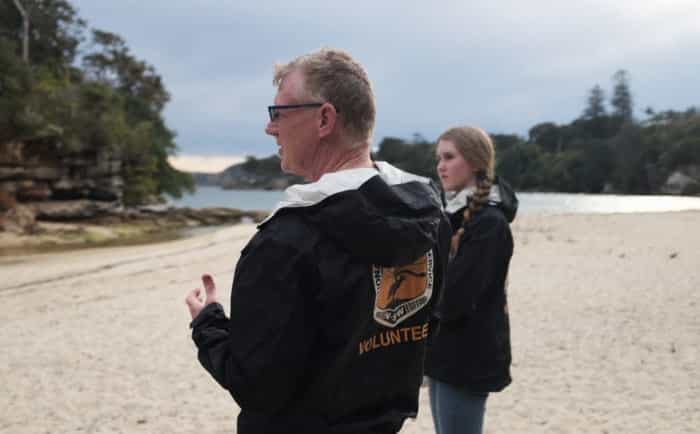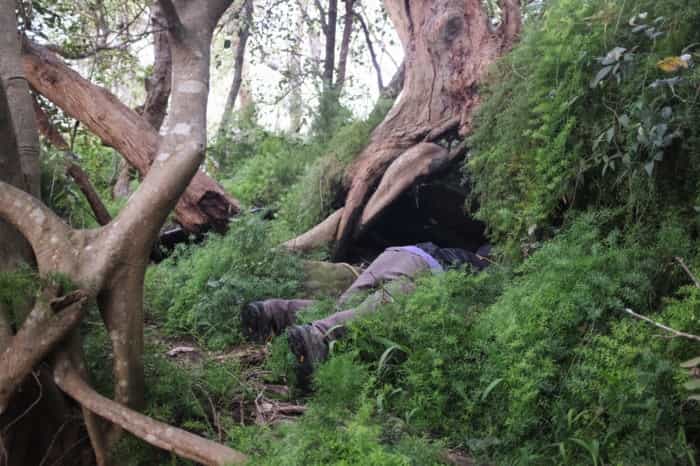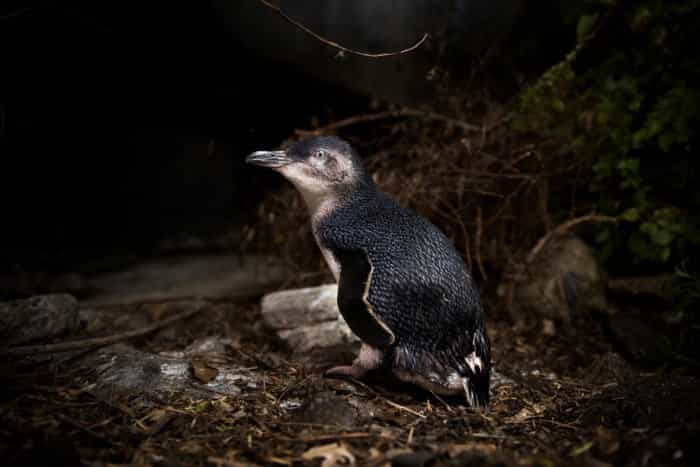Volunteer wardens passionately protect Manly little penguin colony

YEAR 12 student Taylor Springett of Mosman High School, on Sydney’s north shore, has a unique way of destressing ahead of her HSC exams. She spends 1–2 days a week as a penguin warden.
Penguin wardens are individuals who fiercely guard Manly’s little penguin populations that spread from Cannae Point near Quarantine Beach through to Manly Wharf.
These little penguins make up the last remaining mainland New South Wales colony, and have persisted despite fox and dog attacks, boat strikes, human activity and environmental degradation.
Each and every night, penguin wardens ensure that, after spending their day out fishing, it’s safe for the penguins to return to their breeding sites.
“I love protecting the penguins, not only because I feel lucky to have these animals in such an urban area, but also because it gives me the opportunity to relax and get some fresh air,” Taylor says.
Taylor is just one of 80 penguin wardens who range from age eight to 80 years of age – and the number of wardens continues to grow.

Year 12 student Taylor Springett. (Image credit: Pat Wiecks/Australian Geographic)
The beginning of the penguin warden initiative
Back in the 1990s, people began to recognise that the population of little penguins at Manly had begun to decline. It was thought that there were only 30 remaining.
In response, NSW National Parks and Wildlife Service (NPWS), Manly Council, Manly Environment Centre and other local organisations developed a recovery plan that included the enforcement of a set of rules that protected the penguins, as well as a ‘watching’ program.
However, it wasn’t until the 2015 fox attack that killed 27 little penguins that the penguin warden program ramped up, in part thanks to Curl Curl locals Sally and Tony Garman, who enlisted and trained more and more locals in the NPWS volunteer warden program.
Now, the penguin warden program is far more stringent. There is a penguin warden stationed at various breeding sites from sunset, who then log any activity, ensure the beaches are cleared and free of any disturbances.
“Following their daily fish, they come in right under Manly wharf so we need to make sure no one is there,” says Tony.
“The penguins will pop their heads up just before coming in to check that it’s safe to return. If they see anything, they’ll wait. And if they have chicks that need to be fed, that’s bad news.
“Most people follow the instructions we give them, but some dog walkers who like to let their pets of the lead will say ‘Oh, my dog won’t do any harm to the penguins’, but unfortunately, the penguins don’t know that. They just see a gigantic carnivore. Even the smell puts them off.”

Penguin declines globally
Penguin populations from around the world are under threat from overfishing, climate change human activity and feral predators.
Last year it was reported that the world’s largest king penguin colony had declined by 90 per cent over three decades.
Two little penguins, affectionately named Bella and Lucky, have not returned to Manly Wharf for the breeding season.
“We used Bella and Lucky as a show pair for people who wanted to see little penguins, that way people would steer clear of penguin colonies in any of the neighbouring national parks,” says Tony.
“We’re concerned that, because Bella and Lucky haven’t returned for the breeding season, people will start searching for the penguins in other areas and that will deter penguins from coming to shore.”

Tony checking a penguin nest. (Image credit: Pat Wiecks/Australian Geographic)
Exactly why Bella and Lucky haven’t returned for the breeding season is unknown. NPWS hope that by comparing the Manly little penguin population to the Lion Island population, some answers can be drawn.
The Lion Island population – predator free and far away from any human activity – is also suffering declines, which NPWS suspects may point to a much larger, unknown issue that could be impacting the Manly population as well.
“So many people are emotionally invested in the penguin populations of Manly,” says Tony. “That we have these unique animals in such an urban area is a miracle. Anything we can do to protect them, has to be done.”

A Manly little penguin. (Image credit: By Jamen Percy/Shutterstock)
Want to become a penguin warden? See here.

